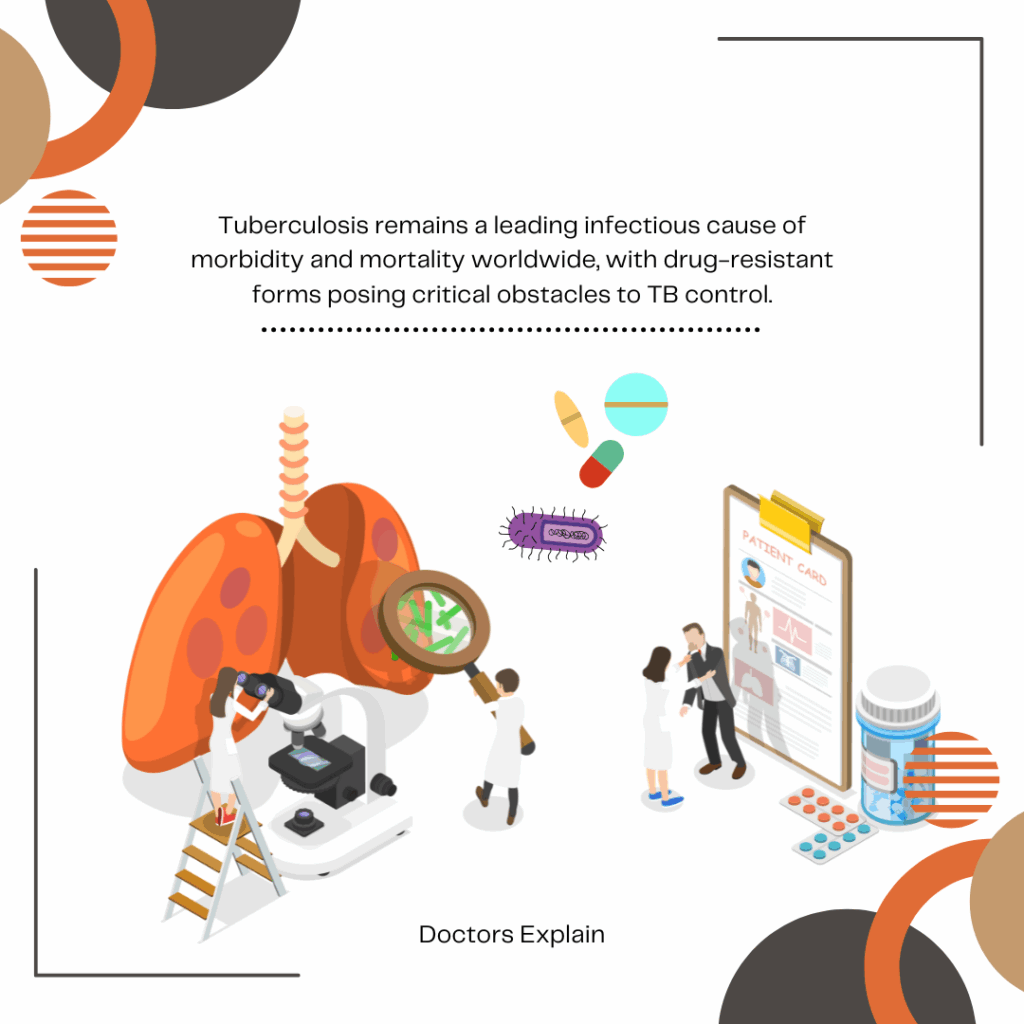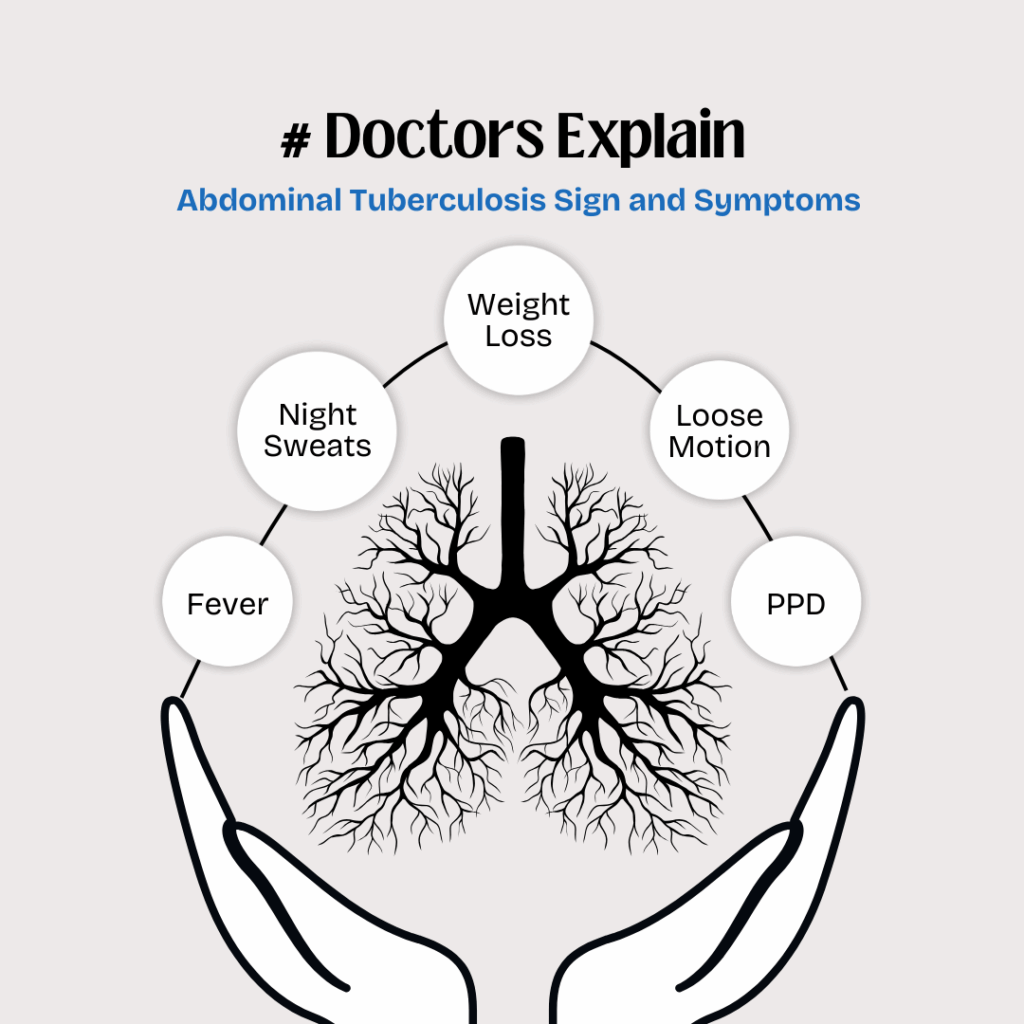
Drug-Resistant Tuberculosis Treatment
- May 25, 2025
- 1 Like
- 564 Views
- 0 Comments
Abstract
Drug-resistant tuberculosis (TB), especially multidrug-resistant TB (MDR-TB) and extensively drug-resistant TB (XDR-TB), presents significant global health challenges due to its prolonged treatment duration, complex regimens, and severe side effects. MDR-TB requires second-line drugs over 18-24 months, including novel agents such as bedaquiline and linezolid. XDR-TB treatment involves individualized regimens guided by drug susceptibility testing. This paper reviews current treatment strategies, emphasizing the necessity of specialized care and monitoring to manage side effects and ensure treatment success. The discussion targets an international audience, with considerations for healthcare systems in high-burden and resource-limited settings.
Introduction
Tuberculosis remains a leading infectious cause of morbidity and mortality worldwide, with drug-resistant forms posing critical obstacles to TB control. The World Health Organization (WHO) estimates that in 2022, approximately 450,000 people developed MDR-TB globally (WHO, 2023). MDR-TB is resistant to at least isoniazid and rifampicin, the two most potent first-line anti-TB drugs, while XDR-TB exhibits resistance to these drugs plus any fluoroquinolone and at least one second-line injectable drug (WHO, 2023). Treatment of these forms is more complex, costly, and toxic, requiring specialized care.
Treatment of Multidrug-Resistant TB (MDR-TB)
The current WHO guidelines recommend an 18-24 month treatment course for MDR-TB, incorporating second-line anti-TB drugs. Recently, the inclusion of newer agents such as bedaquiline and linezolid has improved treatment outcomes and reduced reliance on injectable agents, which are associated with significant adverse effects (WHO, 2022).
Bedaquiline
Bedaquiline is a diarylquinoline antimycobacterial agent that targets mycobacterial ATP synthase, providing potent bactericidal activity against Mycobacterium tuberculosis (Diacon et al., 2014). Its addition to MDR-TB regimens has been shown to increase sputum culture conversion rates and improve survival (Gler et al., 2012). However, bedaquiline carries risks of QT prolongation, necessitating close cardiac monitoring (Pym et al., 2016).
Linezolid
Linezolid, an oxazolidinone antibiotic, exhibits activity against MDR-TB strains and is recommended particularly for patients with fluoroquinolone-resistant TB or those intolerant to other second-line agents (Conde et al., 2020). Despite its efficacy, prolonged linezolid use can cause hematologic toxicity and peripheral neuropathy, underscoring the importance of careful monitoring (Tang et al., 2015).

Treatment of Extensively Drug-Resistant TB (XDR-TB)
XDR-TB treatment is more challenging and must be individualized based on comprehensive drug susceptibility testing (DST) due to extensive resistance patterns (WHO, 2023). Treatment regimens often combine bedaquiline, linezolid, pretomanid, and other second- or third-line drugs guided by DST results (Gandhi et al., 2010).
The Nix-TB trial demonstrated the efficacy of a 6-month regimen combining bedaquiline, pretomanid, and linezolid for XDR-TB and treatment-intolerant MDR-TB, offering a shorter and potentially more tolerable treatment option (Pretomanid Regimen for XDR-TB, 2020).
Specialized Care and Monitoring
Given the prolonged treatment duration (18-24 months for MDR-TB and individualized regimens for XDR-TB) and the toxicity of second-line drugs, patients require specialized multidisciplinary care. Monitoring includes frequent clinical assessments, laboratory investigations (liver function, blood counts), audiometry (for ototoxic drugs), and ECGs (for cardiac toxicity). Psychological support is also critical due to the treatment burden and social stigma associated with TB (Khan et al., 2019).
Healthcare infrastructure, particularly in high TB burden countries, must be strengthened to provide appropriate drug supply, diagnostics, and trained personnel for managing drug-resistant TB cases effectively.

Conclusion
Drug-resistant TB, particularly MDR-TB and XDR-TB, demands complex, lengthy treatment regimens involving second-line drugs such as bedaquiline and linezolid. Individualized treatment for XDR-TB guided by drug susceptibility testing improves outcomes but requires robust healthcare support. Specialized care and vigilant monitoring are essential to manage adverse effects and improve patient adherence, ultimately contributing to global TB control efforts.
References
Conde, M. B., Dalcolmo, M. P., Souza, A. C. R., Garcia, D. R., Maciel, E. L. N., Migliori, G. B., & Kritski, A. L. (2020). Linezolid toxicity in multidrug-resistant tuberculosis: A systematic review and meta-analysis. European Respiratory Journal, 56(1), 1900935. https://doi.org/10.1183/13993003.00935-2019
Diacon, A. H., Pym, A., Grobusch, M., de los Rios, J. M., Gotuzzo, E., Vasilyeva, I., … & Nunn, A. (2014). Multidrug-resistant tuberculosis and culture conversion with bedaquiline. New England Journal of Medicine, 371(8), 723-732. https://doi.org/10.1056/NEJMoa1313865
Gandhi, N. R., Nunn, P., Dheda, K., Schaaf, H. S., Zignol, M., van Soolingen, D., … & Bayona, J. (2010). Multidrug-resistant and extensively drug-resistant tuberculosis: A threat to global control of tuberculosis. The Lancet, 375(9728), 1830-1843. https://doi.org/10.1016/S0140-6736(10)60410-2
Gler, M. T., Skripconoka, V., Sanchez-Garavito, E., Xiao, H., Cabrera-Rivero, J. L., Vargas-Vasquez, D., … & Wells, C. D. (2012). Delamanid for multidrug-resistant pulmonary tuberculosis. New England Journal of Medicine, 366(23), 2151-2160. https://doi.org/10.1056/NEJMoa1112433
Khan, M. S., Feroz, A., Akber, N., Saleem, S., & Qureshi, N. A. (2019). Psychological support for patients with tuberculosis in low-income countries: A systematic review. Global Health Action, 12(1), 1652106. https://doi.org/10.1080/16549716.2019.1652106
Pretomanid Regimen for XDR-TB (Nix-TB Trial). (2020). The New England Journal of Medicine, 382, 893-902. https://doi.org/10.1056/NEJMoa1901814
Pym, A. S., Diacon, A. H., Tang, S., Conradie, F., Danilovits, M., Chuchottaworn, C., … & Andries, K. (2016). Bedaquiline in the treatment of multidrug- and extensively drug-resistant tuberculosis. European Respiratory Journal, 47(2), 564-574. https://doi.org/10.1183/13993003.02053-2015
Tang, S., Yao, L., Hao, X., Liu, Y., Yu, X., Zhang, L., … & Zhang, T. (2015). Linezolid for treatment of chronic extensively drug-resistant tuberculosis. New England Journal of Medicine, 367(16), 1508-1518. https://doi.org/10.1056/NEJMoa1201964
World Health Organization (WHO). (2022). WHO consolidated guidelines on tuberculosis: Module 4: Treatment – Drug-resistant tuberculosis treatment. https://www.who.int/publications/i/item/9789240050911
World Health Organization (WHO). (2023). Global tuberculosis report 2023. https://www.who.int/publications/i/item/9789240061729



Leave Your Comment